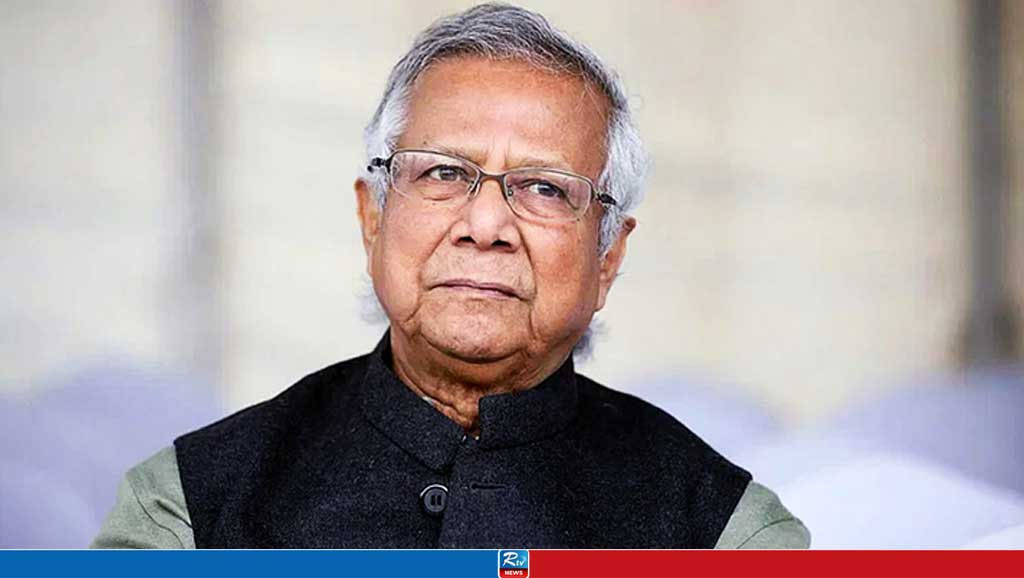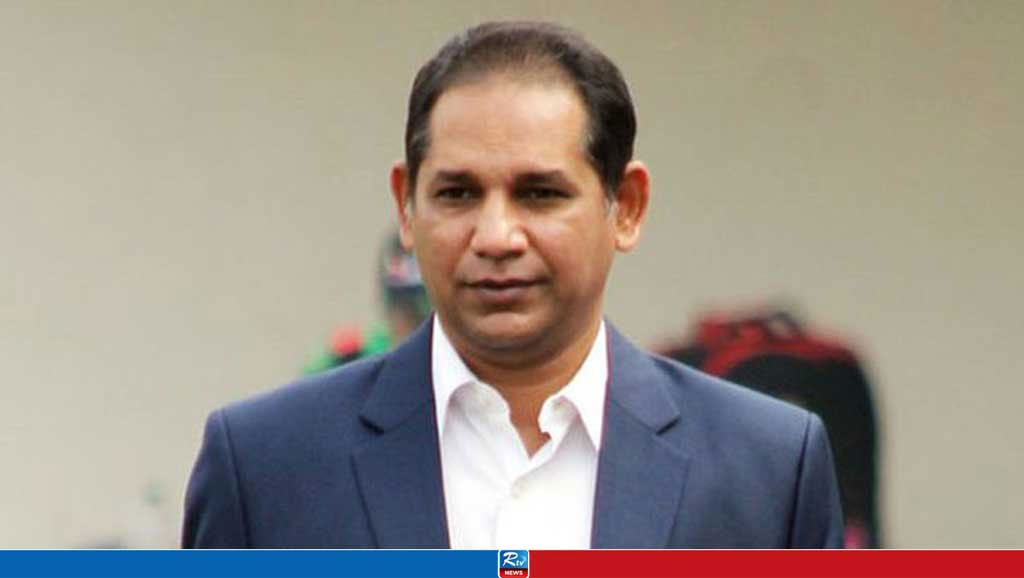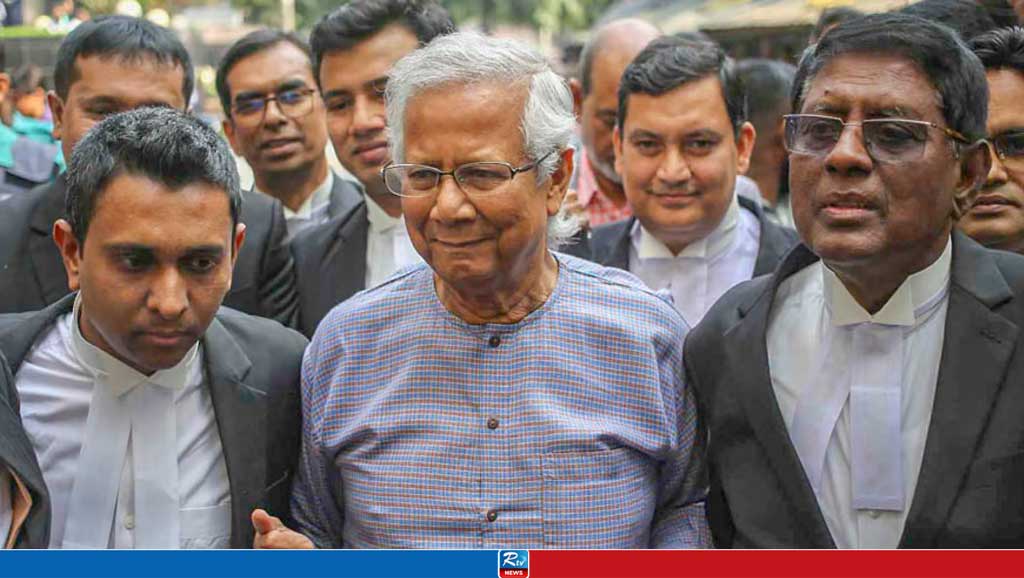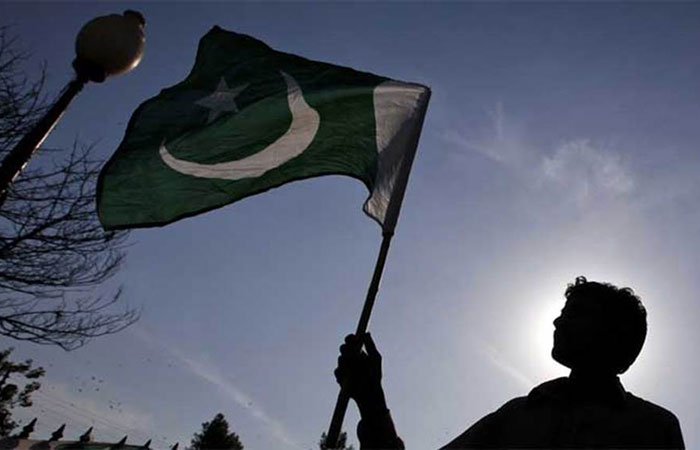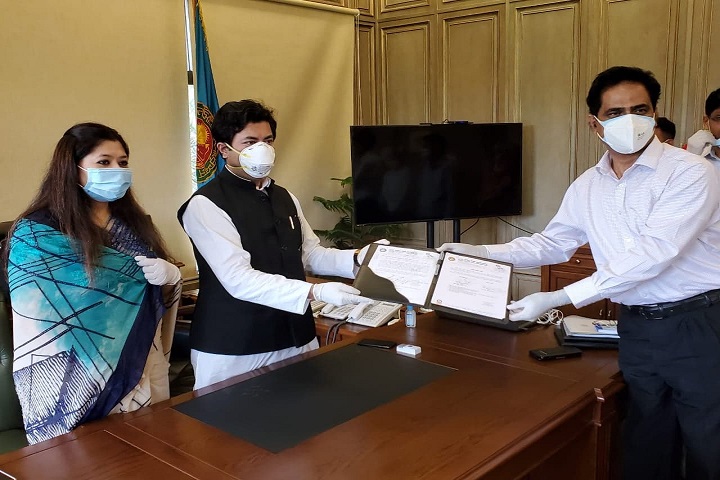PM for putting climate change victims in charge of fighting its impact
Prime Minister Sheikh Hasina has coauthored an article with CEO of the Global Center on Adaptation Patrick Verkooijen on climate change in the famous American weekly news magazine, Newsweek.
The article was published on Thursday (November 30) while the global leaders are convening for the COP28 climate summit in Dubai to find ways to fight climate change impact globally.
Following is the full article:
Let's Put People Back at the Heart of Climate Action
By Sheikh Hasina and Patrick Verkooijen
Climate change is a global disaster inflicted by the rich upon the poor-and increasingly upon themselves. Global leaders convening for the COP28 climate summit in Dubai need to understand that their top-down approach can never work. Rather, we need to put the victims in charge of the fight back and fund their battle.
The climate breakdown will not wait while leaders equivocate. It is already unleashing typhoons and floods on communities, and spreading hunger through crop failures and drought. Only a tiny fraction of climate funding reaches the people battling the worst effects of climate change-they are without the resources needed to protect themselves and their livelihoods, leaving them more vulnerable. Climate injustice is being exacerbated.
Climate action at a global level makes no sense unless it helps protect people on the frontlines of climate change. We need to find ways to quickly and efficiently channel all necessary funding to locally led climate-resilience initiatives. This calls for fresh thinking and a new approach. At COP28, the world needs to double down on adaptation finance. The Loss and Damage Fund must become fully operational so we can respond rapidly and urgently to meet the needs of local communities to rebuild infrastructure and adapt more effectively to climate impacts. This is also a vital step toward climate justice.
Moving from Global to Local
To ensure adaptation finance flows from developed to developing countries double to reach $40 billion by 2025, as pledged at COP26 in Glasgow, finance providers must on average increase annual adaptation flows by at least 16 percent between 2022 and 2025. Yet adaptation finance flows to developing countries declined 15 percent in 2021 to $21.3 billion. That is clearly too little. Yet less than 6 percent of this sum, and perhaps as little as 2 percent, reaches climate-resilience projects led by local communities. Estimates vary due to a lack of properly tracking and reporting money flows-and this needs to improve. But it's also because climate policy and decision-making flows from the top down.
The people who know which towns, streets, fields, and homes are most vulnerable are those who live there. We must encourage and empower them to get together and draw up and implement their own projects to protect themselves against the consequences of climate change.
This is easier said than done. Local communities often lack the time and skills to manage longer-term projects aimed at strengthening climate resilience. They need help and training to draw up project proposals; and to access funding they need basic things such as legally constituted organizations and bank accounts.
Bangladesh has always been a leader in locally led climate adaptation and recently the government has been exploring various ways to channel climate assistance to local communities. The Mujib Climate Prosperity Plan makes it easier to access low-interest loans for adaptation, has a climate risk fund to train communities and local governments to lead adaptation, expands green banking services, and explores paying communities for ecosystem services.
Through the Global Hub on Locally Led Adaptation in Dhaka, the government is also helping scale up solutions and share best practices with other vulnerable regions of the world. These efforts are already achieving dramatic improvements on the ground.
From Challenges to Opportunities
In Mongla, the second-largest seaport in Bangladesh, the mayor and residents are drawing up a plan to identify economic opportunities in their climate challenges. Like other major cities, Mongla has seen a large influx of climate migrants even as it struggles with rising sea levels-a consequence of global warming-that are contaminating the city's fresh water supplies. Mongla is mapping settlements, identifying key climate vulnerabilities, and developing locally led initiatives. With the support of the U.K. and Canadian governments working through BRAC, an international development agency, and the Global Center on Adaptation, it is hoped that Mongla's People's Adaptation Plans might become a blueprint for other towns and cities adapting to climate change.
This shows us that locally led adaptation is the way forward. But we need to massively scale up these approaches. For that, we need to find ways to finance local communities, without creating undue risk for donors. Strong intermediary organizations can be valuable here to act as a transmission belt to accelerate People's Adaptation Plans into the portfolio of large financiers, including international finance institutions such as the World Bank and Asian Development Bank.
COP28 will only be a success if it achieves real benefits for the communities most affected by the climate crisis. This year's climate summit must ensure that finance flows to the poor communities most affected by climate change, and into locally led, appropriate, and effective adaptation. If we achieve this, the world will have taken a big step toward redressing the gross injustices of climate change.
Source: BSS
01 Dec 2023,19:55
















 Live Tv
Live Tv
